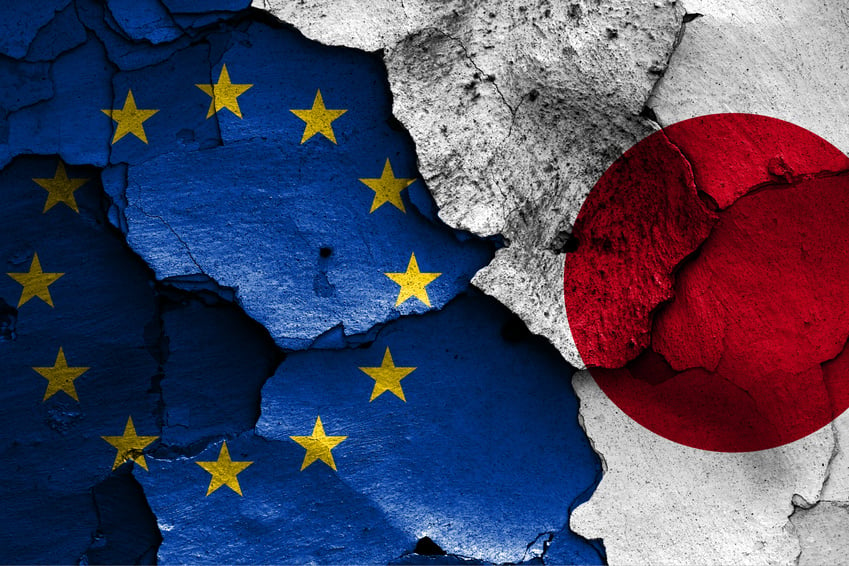In brief
The Ministry of Economy, Trade and Industry (METI)’s CCS (Carbon Capture and Storage) Long-term Roadmap Working Committee published its Final Report on the implementation of CCS in Japan in March 2023.1 This followed on the heels of the Japanese Cabinet’s approval of the “Basic Strategy for the Realization of GX” a month earlier, which stated that legislation and a regulatory framework for CCS should be developed as soon as possible.2 METI began its deliberations in September 2023, resulting in the publication of its “Draft Interim Summary of the CCS Regulatory Framework” on 15 December 2023.3 This alert summarizes the now-more-clarified Japanese legal regime for CCS projects (“CCS Business Act“).
1. Sector to be regulated
Three sectors make up the CCS value chain: separation and recovery, transport and storage. Transport and storage were deemed to be covered by the CCS Business Act, leaving regulations for separation and recovery for future consideration.
2. Storage business regulations
2.1 Creation of Test Drilling Rights, Storage Rights and permit regime
In order to prevent third parties from interfering with CO2 storage and to facilitate financing, deemed rights in rem to exclusively use an area for test drilling and storage (i.e., Test Drilling Rights and Storage Rights) will be established. Test drilling and storage businesses will be subject to a METI permit regime, and the relevant rights are established after obtaining a permit. Exploration of geological formations will also be subject to a separate permit regime.
2.2 Procedures for establishing test drilling and storage rights
The procedure for establishing test drilling and storage rights will be subject to public tender through the following process.
- METI will designate areas where reservoirs capable of permanently storing CO2 exist or have the potential to exist as “specified areas” and invite public applications for CO2 test drilling and storage in the specified areas.
- The applicant will specify the extent to which test drilling and storage rights are to be established in the specified area and apply for the relevant permit.
- The government will examine the applications based on certain criteria (e.g., applicants’ technical competence and financial security and whether the applied-for rights would infringe existing mining rights), select an applicant, consult the governor of the prefecture in which the specified area is located and grant the permit.
However, a holder of an oil and/or gas mining concession who intends to operate a CO2 storage business in its concession area will be able to obtain a CO2 storage permit and storage rights without the need for the designation of a specific area or a public tender procedure.
2.3 Plan for the implementation of storage projects
A CCS business is required by METI to draft an implementation and security plan for the project and obtain METI’s approval. The CCS business is obliged to implement the storage project in line with the METI approved plan and the government may order changes if necessary.
2.4 Monitoring
CCS businesses will be obliged to monitor stored CO2. The specific details of the monitoring are subject of continued discussions.
2.5 Measures to ensure storage project safety
Other obligations are also imposed on CCS businesses, including a prohibition on refusing CO2 storage requests without justification and a prohibition on discriminatory treatment of certain emitters, as well as the obligation to provide notice of fees and other conditions.
New security regulations will also be developed, including measures necessary to ensure the security of aboveground storage facilities and underground well drilling and CO2 storage safety.
In certain cases, METI will, if necessary, issue business improvement orders to CCS businesses, instructing them to put mechanisms in place to ensure that their operations are appropriate. This includes situations in which it is necessary to protect the interests of CO2 emitters or to improve security.
2.6 CO2 ownership
In principle, ownership of stored CO2 is to be agreed upon contractually by the CCS business, CO2 emitters and other related parties. METI is required to be notified of the CO2 ownership arrangements as part of the fees and other conditions mentioned in paragraph 2.5 above. METI will then check, for example, whether ownership of stored CO2 has been transferred to the CCS business and whether there are any problems from the perspective of stable implementation of the storage project.
2.7 Management and other services after the end of a storage project
Management of storage sites will be transferred to the Japan Organization for Metals and Energy Security (JOGMEC) after a certain period of time has elapsed after the completion of a storage project. However, METI will only approve the transfer of management operations after confirming that certain requirements have been met, such as stability of the stored CO2 and restoration of the storage site to its original state.
It is important to note that the transfer of storage site management and other operations does not mean that JOGMEC succeeds to the claims against and liabilities of CCS businesses. In the unlikely event of CO2 leakage post-transfer, liability lies with the party responsible for causing the leakage in accordance with the Civil Code.
2.8 Securing funds for management and other operations after the end of a storage project
CCS businesses are required to set aside adequate reserves in advance to fund monitoring and other post-project tasks. In addition, CCS businesses are obliged to contribute funds to JOGMEC to fund long-term storage site management operations.
2.9 Compensation for damages caused by storage projects
Liability for damages is imposed on CCS businesses irrespective of intent or negligence (i.e., no-fault liability) if a third party suffers damage as a result of an event specific to the storage project.
3. CO2 transport regulations
Business operators carrying out CO2 transport operations via pipelines are subject to various regulations. Among others, they are prohibited from refusing requests for CO2 transport without justification and from discriminatory treatment of CO2 emitters and are required to provide notice of fees and other conditions. In addition, new security regulations will be implemented, including obligations to comply with and maintain technical standards, provide notice of construction plans, carry out pre-use inspections and periodic voluntary inspections and develop and provide notice of security measures. METI will also establish a regime under which it will issue business improvement orders to pipeline transport operators when necessary.
Transport of CO2 by ships and vehicles is not regulated by the CCS Business Act at present.
4. Public utility privileges
As storage and pipeline transport projects are recognized to have certain public benefits related to the realization of carbon neutrality in Japan, special measures, such as access to land, will be taken to facilitate these projects.
5. Issues for future consideration
Government support for CCS projects will be examined in light of support provided by other countries. In addition, discussions on improving the environment for CCS projects overseas will be fast tracked. JOGMEC will support the acquisition of CO2 storage concessions by Japanese companies overseas (e.g., by helping with risk management). In addition, studies will be conducted related to achieving emissions trading through a credit system by promoting projects involving CCS via the bilateral credit system (JCM) and supporting the launch of an international credit system for CCS-related projects.
1 https://www.meti.go.jp/shingikai/energy_environment/ccs_choki_roadmap/20230310_report.html
2 https://www.meti.go.jp/press/2022/02/20230210002/20230210002.html
3 https://www.meti.go.jp/shingikai/enecho/shigen_nenryo/carbon_management/004.html






